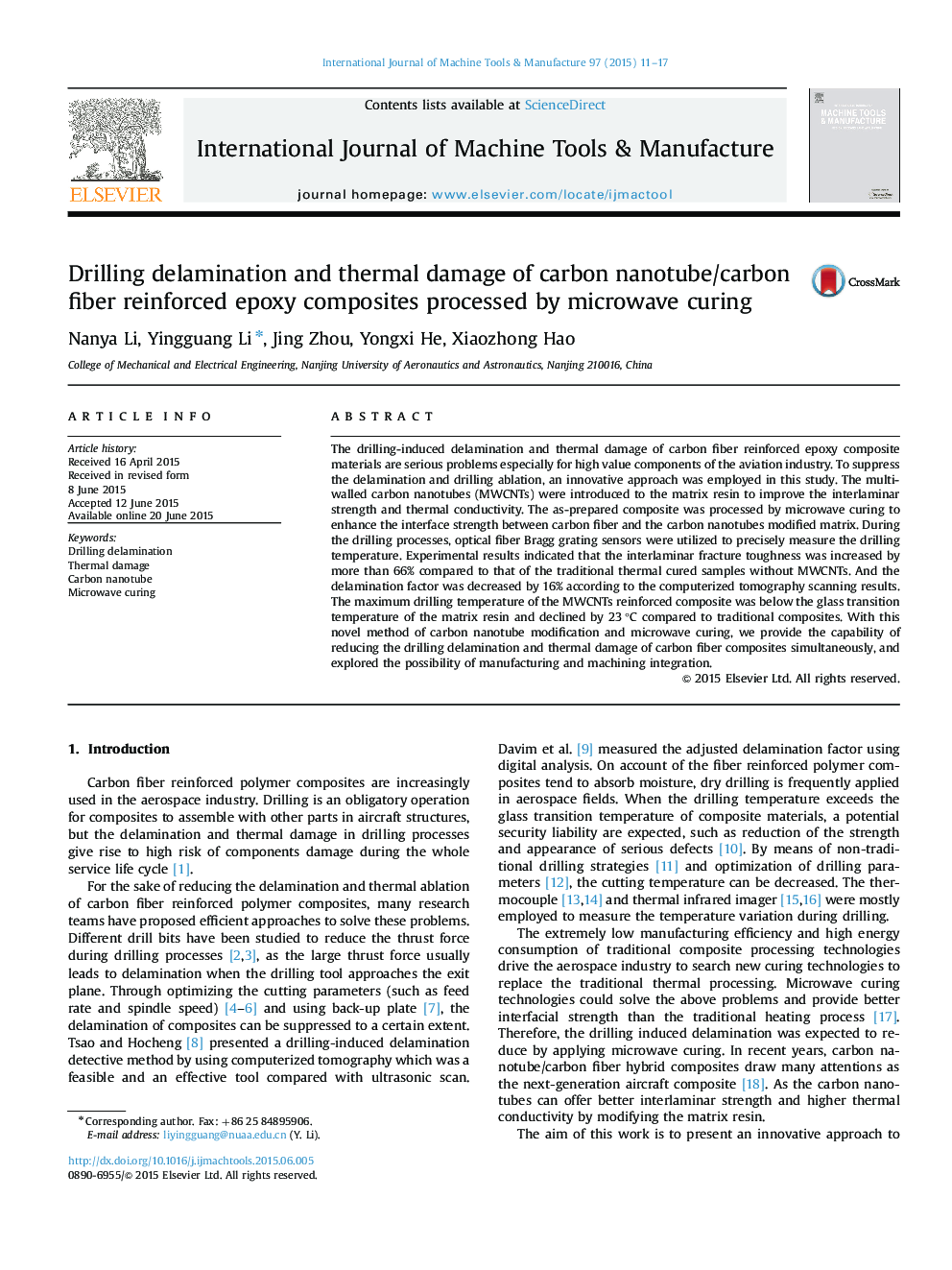| Article ID | Journal | Published Year | Pages | File Type |
|---|---|---|---|---|
| 784338 | International Journal of Machine Tools and Manufacture | 2015 | 7 Pages |
•The composites were modified by carbon nanotubes and processed by microwave.•The delamination factor was decreased by 16%.•The maximum drilling temperature was decreased by 23 °C.•The reinforcement mechanism of the innovative approach was analyzed.
The drilling-induced delamination and thermal damage of carbon fiber reinforced epoxy composite materials are serious problems especially for high value components of the aviation industry. To suppress the delamination and drilling ablation, an innovative approach was employed in this study. The multiwalled carbon nanotubes (MWCNTs) were introduced to the matrix resin to improve the interlaminar strength and thermal conductivity. The as-prepared composite was processed by microwave curing to enhance the interface strength between carbon fiber and the carbon nanotubes modified matrix. During the drilling processes, optical fiber Bragg grating sensors were utilized to precisely measure the drilling temperature. Experimental results indicated that the interlaminar fracture toughness was increased by more than 66% compared to that of the traditional thermal cured samples without MWCNTs. And the delamination factor was decreased by 16% according to the computerized tomography scanning results. The maximum drilling temperature of the MWCNTs reinforced composite was below the glass transition temperature of the matrix resin and declined by 23 °C compared to traditional composites. With this novel method of carbon nanotube modification and microwave curing, we provide the capability of reducing the drilling delamination and thermal damage of carbon fiber composites simultaneously, and explored the possibility of manufacturing and machining integration.
